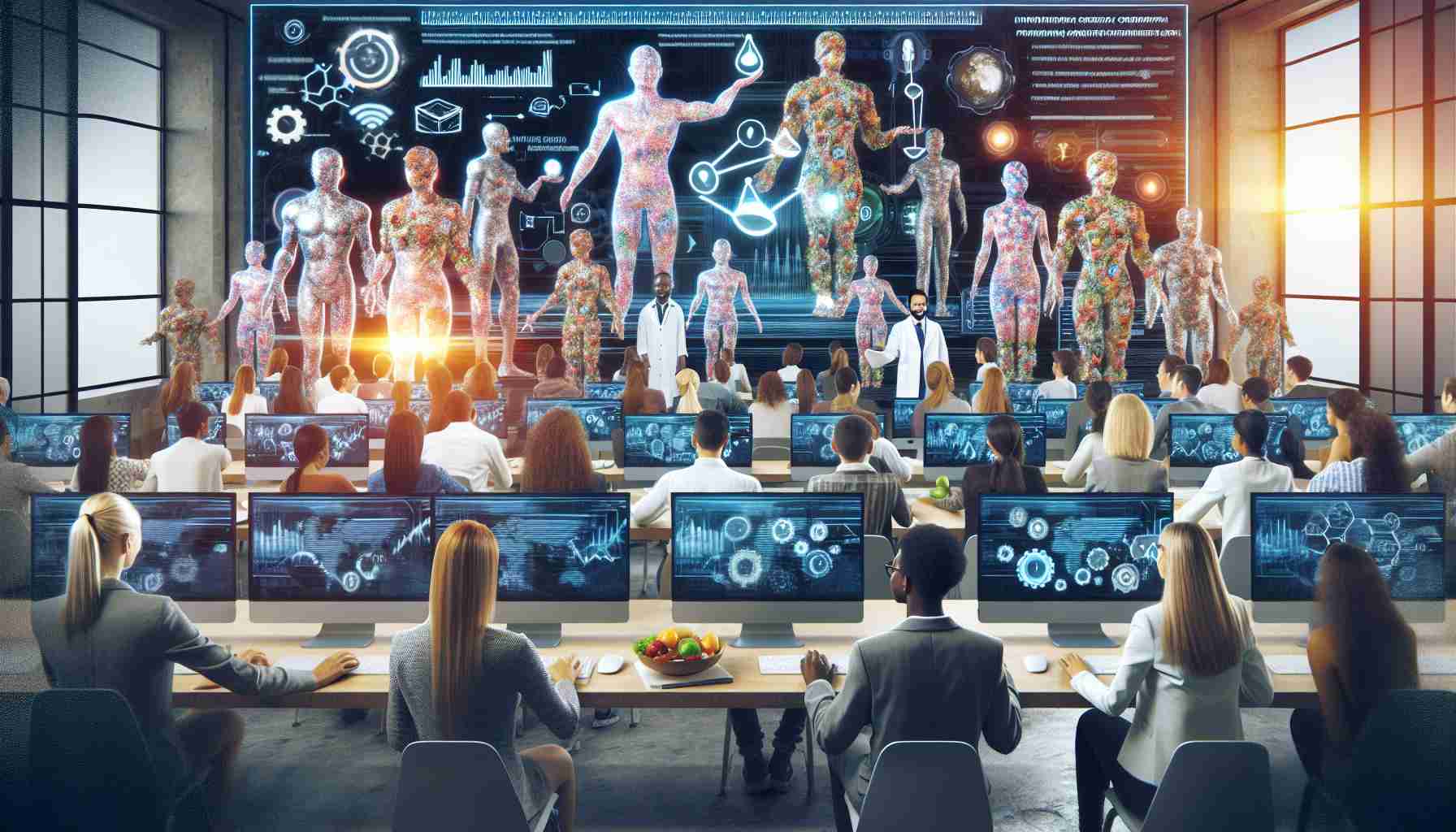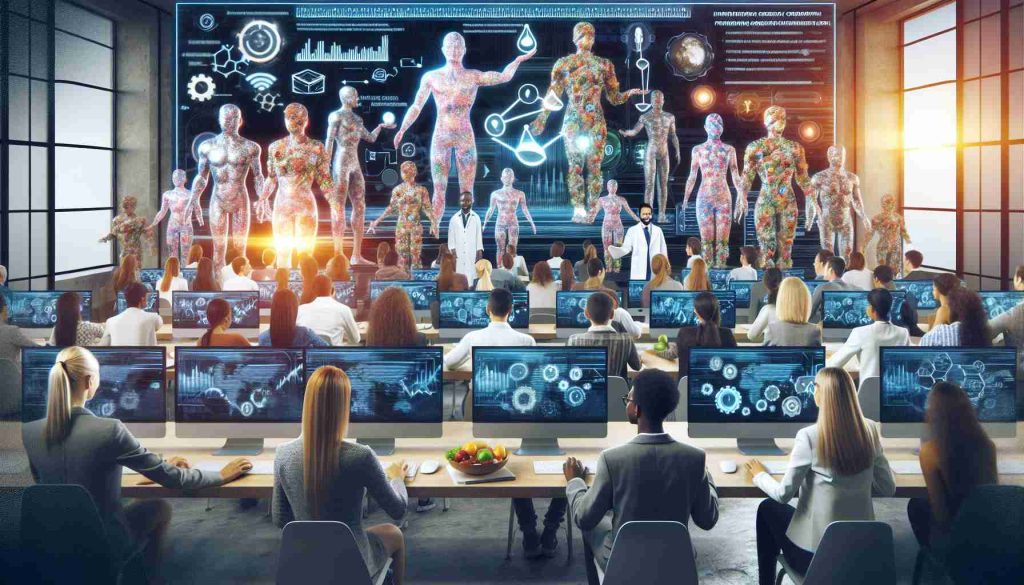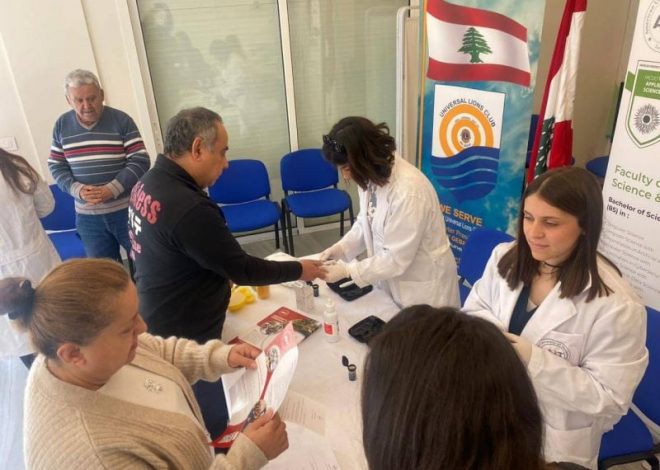
Revolutionizing Nutrition Education Through AI: The ATLAS Experience

In the quest for optimizing the communication expertise of nutrition and dietetics students, the Authentic Teaching and Learning Application Simulation (ATLAS) platform emerges as a trailblazing AI-driven educational tool. This innovation, described by researchers in the journal Nutrients, provides an interactive, voice-activated learning environment that challenges traditional training methods.
Summary
ATLAS, a generative artificial intelligence model, has been designed to enhance the way nutrition and dietetics students learn vital communication skills. Developed at Monash University, Melbourne, the tool offers achievable, personalized, and cost-effective learning experiences through virtual simulated patients (VSPs). This sophisticated platform seeks to surpass the conventional use of human-simulated patients (HSPs) which, though effective, are financially and logistically demanding.
The Evolution of Practical Education in Nutrition
Communication is a pivotal element in the field of nutrition and dietetics, directly influencing patient outcomes. While the importance of communication cannot be understated, integrating its practice into educational curricula has posed significant challenges. This has led to reliance on HSPs, which despite their realism, are subject to high costs and maintenance requirements.
By integrating large language models and customizable patient personas, ATLAS is redefining communication training in the digital age. It leverages voice recognition to simulate authentic client interactions where students must demonstrate their skills in real-time. ATLAS goes further, altering its responses to reflect the rapport between student and VSP, providing a truly immersive learning experience.
Positive Reception and Forward Momentum
Master’s program students utilizing the ATLAS platform have reported beneficial experiences, highlighting the immediate, personalized feedback that fosters self-improvement. Proving its value as an educational resource, ATLAS facilitates a deeper understanding between theoretical knowledge and practical application.
In conclusion, ATLAS stands out as a significant step forward for experiential learning in nutrition and dietetics. Its ability to blend AI with academic instruction bridges gaps previously unaddressed, opening doors to enhanced learning strategies that prepare students for real-world clinical interactions without the limitations of traditional methods.
The Future of AI in Nutrition and Dietetics Education
Artificial Intelligence (AI) in educational tools like the ATLAS platform is revolutionizing the industry of nutrition and dietetics education. Market forecasts for educational AI systems suggest a surge in demand as institutions recognize the enhancements these technologies bring to learning and development strategies. AI-driven education not only provides scalability but also introduces cost-effective and highly accessible learning solutions for students globally.
Education within dietetics and nutrition is increasing attention due to the crucial role of dietitians in public health and individual well-being. As healthcare systems continue to embrace tech-driven solutions, AI platforms like ATLAS are expected to become more integrated into professional training programs. This integration signifies a shift towards more interactive and learner-centric approaches that align with the evolving expectations of a technologically adept student body.
Addressing the Challenges
Despite the promising outlook, the industry must navigate certain challenges inherent to implementing AI in education. Data privacy and security are critical concerns, especially when handling sensitive health-related information. Furthermore, ensuring that these AI systems are inclusive and unbiased remains a crucial task for developers to prevent the propagation of disparities within educational systems.
Costs associated with the development and continuous updating of these platforms often represent significant investments for educational institutions. While the long-term benefits can be substantial, securing initial funding and demonstrating return on investment continues to be a hurdle for broad adoption.
Ethical considerations, too, are at the forefront of industry discussions. As AI platforms assume more prominent roles in education, questions about the replacement of human interaction and potential overreliance on technology arise. It is essential to find a balance that incorporates AI without detracting from the invaluable human elements of teaching and patient care.
Looking Ahead
The potential of AI in nutrition and dietetics education is vast, offering novel ways to simulate real-world experiences and support students in developing crucial soft skills. As platforms like ATLAS become commonplace, institutions must navigate the implementation complexities and ethical considerations to ensure these technologies contribute positively to the field.
With continued research and development, the appetite for advanced AI educational tools within nutrition and dietetics, as well as other healthcare sectors, is set to grow. These innovations promise to elevate the standard of healthcare education and, subsequently, the quality of care provided to patients.
For more insights into the landscape of AI and trends in healthcare education, visit the website of the Nutrients journal for expansive research and articles.

Jerzy Lewandowski, a visionary in the realm of virtual reality and augmented reality technologies, has made significant contributions to the field with his pioneering research and innovative designs. His work primarily focuses on enhancing user experience and interaction within virtual environments, pushing the boundaries of immersive technology. Lewandowski’s groundbreaking projects have gained recognition for their ability to merge the digital and physical worlds, offering new possibilities in gaming, education, and professional training. His expertise and forward-thinking approach mark him as a key influencer in shaping the future of virtual and augmented reality applications.

Ethel Purdy – Medical Blogger & Pharmacist
Bridging the world of wellness and science, Ethel Purdy is a professional voice in healthcare with a passion for sharing knowledge. At 36, she stands at the confluence of medical expertise and the written word, holding a pharmacy degree acquired under the rigorous education systems of Germany and Estonia.
Her pursuit of medicine was fueled by a desire to understand the intricacies of human health and to contribute to the community’s understanding of it. Transitioning seamlessly into the realm of blogging, Ethel has found a platform to demystify complex medical concepts for the everyday reader.
Ethel’s commitment to the world of medicine extends beyond her professional life into a personal commitment to health and wellness. Her hobbies reflect this dedication, often involving research on the latest medical advances, participating in wellness communities, and exploring the vast and varied dimensions of health.
Join Ethel as she distills her pharmaceutical knowledge into accessible wisdom, fostering an environment where science meets lifestyle and everyone is invited to learn. Whether you’re looking for insights into the latest health trends or trustworthy medical advice, Ethel’s blog is your gateway to the nexus of healthcare and daily living.


